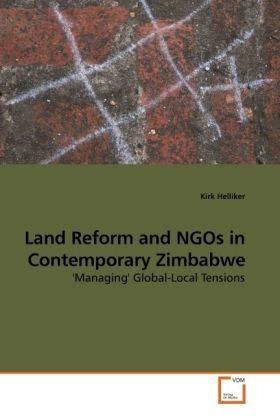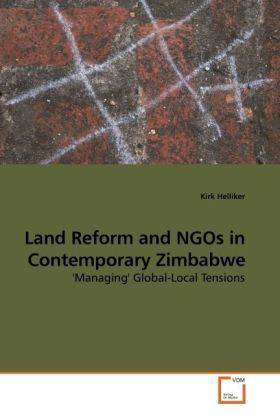
- Afhalen na 1 uur in een winkel met voorraad
- Gratis thuislevering in België vanaf € 30
- Ruim aanbod met 7 miljoen producten
- Afhalen na 1 uur in een winkel met voorraad
- Gratis thuislevering in België vanaf € 30
- Ruim aanbod met 7 miljoen producten
Zoeken
Land Reform and NGOs in Contemporary Zimbabwe
'Managing' Global-Local Tensions
Kirk Helliker
Paperback | Engels
€ 77,95
+ 155 punten
Omschrijving
Since the year 2000, significant land redistribution (known as 'Fast Track') has taken place in Zimbabwe. This has posed serious challenges for both international and local Non-Governmental Organisations (NGOs) involved in land reform advocacy and rural development. The volume examines the Fast Track process in all its complexities, and identifies the ways in which NGOs have sought to 'manage' the tensions arising from land reform. In the context of conceptualising NGOs as a particular kind of organisational form in the modern world, it is argued that NGOs tend to privilege global forces over more empowering local initiatives, thereby undermining the prospects for social development. In the end, it appears that NGOs regularly valorise their own organisational sustainability.
Specificaties
Betrokkenen
- Auteur(s):
- Uitgeverij:
Inhoud
- Aantal bladzijden:
- 324
- Taal:
- Engels
Eigenschappen
- Productcode (EAN):
- 9783639198515
- Uitvoering:
- Paperback
- Afmetingen:
- 150 mm x 219 mm
- Gewicht:
- 432 g

Alleen bij Standaard Boekhandel
+ 155 punten op je klantenkaart van Standaard Boekhandel
Beoordelingen
We publiceren alleen reviews die voldoen aan de voorwaarden voor reviews. Bekijk onze voorwaarden voor reviews.







